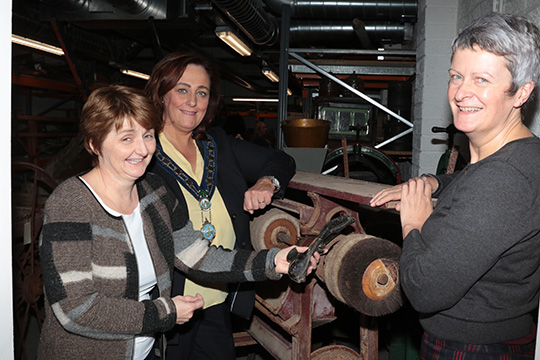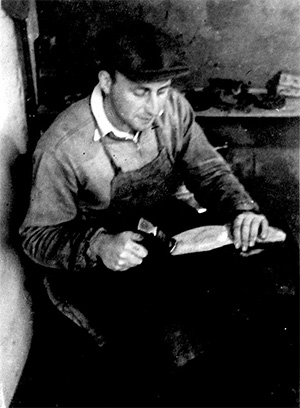One of the few surviving objects from the Jewish Refugee farm at Millisle in County Down has been donated to Down County Museum.
The museum has just taken delivery of a shoe machine used by trainees at the farm during World War II.
In 2014, as part of it PEACE III-funded project on community history, the museum developed an online learning project about the history and legacy of the farm.
Check out: www.downcountymuseum.com/findingrefuge
This link provides opportunities for schools, groups and individuals to find out more about the farm at Millisle which was so vital in saving a number of children and adults from the Holocaust.

‘Kinder transport’ children from Germany, Austria and Czechoslovakia, fleeing from Nazi persecution, arrived in the UK in 1938 and a number of them went to live at the farm in Millisle which had been bought for them by the Belfast Jewish community.
A number of photographs survive from the farm and many of the now elderly refugees who lived there travel across the world recounting their story to different audiences. A small number of objects survive, but the size of the shoe machine which was used by the refugees, meant it was stored in sheds and garages from the closure of the farm.
Now, the shoe machine will find a permanent home at Down County Museum where it will be preserved for future generations and serve as a reminder of the unique history of the farm and its symbolism as a place of refuge for some of the European Jews who survived the Holocaust.

The Chairperson of Newry, Mourne and Down District Council, Councillor Gillian Fitzpatrick, said: ‘The preservation of objects like this is a crucial part of the role of museums. It is very moving to be able to be here to see this object.
“Despite its relatively mundane appearance, it is a tangible reminder of both the horrors of the Holocaust and the determination of a group of people in Northern Ireland to ensure that some children were rescued from certain death.
“Objects like this are rare and I am delighted that the museum has been able to receive it.”
In 2005 the Holocaust Memorial Day Trust (HMDT) was set up by the Government to organise and support the commemoration of Holocaust Memorial Day. Its aim is to learn the lessons of the past to create a safer, better future.
Down County Museum’s work in ensuring the survival of objects like the shoe machine which help pass on the important story of these refugees is so important.
Shirley Lennon, HMDT Northern Ireland Support Worker, explained: “The theme for Holocaust Memorial Day for 2017 is How Can Life Go On? For people like Moshe, who used the shoe machine on the farm, it tells how the Holocaust changed lives forever, even for those who survived.
“Coming from a wealthy family, he had to flee to a foreign county and learn new skills to survive, as well as deal with the trauma of the loss of his family. It is vital to share these stories to prevent prejudiced and hatred today.”

























